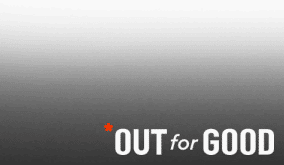
The paper of record has spoken: Daddies are in!
What’s next? Is the Gray Lady going to discover that gay men like Madonna? How about a show called RuPaul’s Drag Race?
We enjoy poking fun at the New York Times whenever it analyzes aspects of gay culture, such as our infatuations with muscles and mustaches. That’s not because the pieces aren’t well-written or insightful–they are! It’s just… what the NYT says in 10,000 words can often be expressed in three. For example, the summary to Mark Harris’ deep dive into daddies could read as the following: “DADDIES R HOT!”
How about we take this to the next level?
Subscribe to our newsletter for a refreshing cocktail (or mocktail) of LGBTQ+ entertainment and pop culture, served up with a side of eye-candy.
🤪🤪🤪 (The emojis are attached for a playful purpose. We’re trying to attract daddies, after all!)
In the feature, Harris explores the roots of the “daddy” archetype, and whether its application is more playful or problematic. He makes the observation that most so-called “daddies” are hyper-masculine and straight-acting, which raises all sorts of toxic stereotypes.
“It seems like a relic of an earlier era, one in which actual out gay celebrities were such a rare commodity that we had no choice but to find our idols elsewhere, either in celebrities who we assumed were in the closet or in those who we knew weren’t gay but wanted to pretend might be,” Harris writes.
He points to the lionization of actors such as Ryan Gosling and Pedro Pascal, who did win a coveted “Daddy” award last year.
Related*


Though daddies typically embody masculine traits, there is an intangible level of queerness, or at least perceived queerness, that leads to the characterization. Under the most broad definition, “daddy” means “attractive older man.” But it takes more than that.
Hetero A-listers such as Brad Pitt, Idris Elba and Jon Hamm are handsome and debonair. But they’re not daddies. The title is reserved for hunks such as Colman Domingo and Matt Bomer, who are, well, gay!
The complexity of “daddy” extends to where the term is probably most often deployed: the bedroom.
The word is shorthand for “sugar daddy,” an older, wealthy man who supports a younger, attractive person. The power imbalance is the point. “Daddy” is probably picking the restaurant, paying for dinner and calling the Uber home. He will also have a martini, straight up.
As for the boy, he’ll take a glass of white. Chilled, please!
“The word says, ‘Use me, take care of me, school me, permit me to be your plaything, tell me what to wear and maybe buy it for me, too,'” Harris writes. “The very desire to be ordered around, bossed or dominated speaks to an appetite for a dynamic that is now frowned upon at universities, workplaces and the like. Where’s our self-respect?”
But viewing our collective “Daddy Era” purely through an academic lens doesn’t quite capture the essence. There is a playful, frisky aspect to the word and its related foreplay.
In other words, “Daddy” is camp!
“Daddy” is also in demand; and in the process, improving the historically fraught relationship between gay men and aging. Though many argue that “daddy” is a mindset, there is an undoubted age-related component. (A DL frat bro cannot be a daddy, no matter what he calls himself on Grindr.)
Related*


Gay guys share stories about the first time someone called them “daddy” & how it made them feel
We’ve had a Daddy-awakening.
Research finds that young men are ravenous for older guys these days. The author Tony Silva, who explores the dynamics of relationships between younger and older men in his book, says he thinks the trend stems from a yearning for stability in an increasingly uncertain wild.
“A lot of the younger guys I talked to overwhelmingly said they found men around their own age (guys in their 20s or early 30s) to be really immature, and were not looking for the same things,” he told Queerty. They’re interested in someone who is not only emotionally mature and stable, but might also be looking for a relationship.”
That said, don’t sell the daddies short. They represent more than wealth. While sugar daddies may be about money, silver foxes are about looks.
“I think in wider society, there’s a stereotype that younger people might be interested in older folks just because of money, which is definitely not the case here,” Silva said. “Younger men said they found older men very physically attractive: gray hair, silver, beards, salt and pepper hair.”
Money. Looks. Power. It sounds like if somebody is a “daddy,” they’ve made it!
Yeah… we fail to see the problem here.
Hello, Daddy!
Sign up for the Queerty newsletter to stay on top of the hottest stories in LGBTQ+ entertainment, politics, and culture.


















































